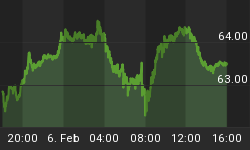With everyone's mind focused on remembering the victims and honoring the heroes of September 11, I will keep this week's commentary brief.
During the stock market bubble, the rules of the game were rewritten. Companies were not valued based on traditional valuation standards. One of the more popular valuation measures involved using multiples or other metrics based on what companies in the industry were being acquired at. As the bull market continued through the 1990s, companies had access to cheap money, either their own stock or debt offerings that investors clamored over. Cheap money pushed valuations to extremes as companies paid above market prices for acquisitions needed to maintain the growth investors demanded. Now that the money spigot has been turned off the acquisition spree has ended. Investors are realizing that the acquisition prices did not reflect economic reality. Similar to what I wrote last week about Intel, it is dangerous to base valuations on assets values when those assets are unique or industry specific. If a company needs to liquidate assets to raise cash, it is likely the companies most suited to purchase the assets are same boat and will not be the requisite financial position. This is happening in the media sector now. Since media companies were competing against each other acquiring assets, prices were pushed to uneconomic levels. Now, these companies are looking for buyers, as they need to raise cash to fund their bloated cost structure that resulted in making all the previous acquisitions. Sunday's New York Times carried a story, Short of Cash, Media Giants Are Selling Assets, detailing how media giants are trying to sell assets to raise cash.
This week, International Data Corp. (IDC) lowered its forecasts for PC shipments. Instead of the 4.7% growth this year and 11.1% in 2003, the technology research firm now expects growth of only 1.1% this year followed by 8.4% next year. This should come to little surprise. Technology companies like Hewlett Packard and Intel have commented that business spending remains weak and consumers have shunned PCs as well. The PC market is has matured and is quickly becoming a replacement market. As growth rates continue to decline, earnings multiples will follow.
The next greatest thing since sliced bread was supposed to be the third generation of mobile phone, know as 3G. 3G was also supposed to be the key driver for continued semiconductor sales. Readers here know that we have been skeptical of 3G from the beginning. Over the past week, several industry insiders have been in the press issuing their own warnings. Irwin Jacobs, CEO of Qualcomm, said the W-CDMA standard that Europe has embraced, has almost 100 companies with a patent involved and all want a piece of the royalty pie. With all these companies vying for payment, some are estimating royalty payments could make up 20% of the price of a handset. This compares to a 5% royalty for CDMA2000 handsets, the 3G standard being adopted in the US. The higher cost of a 3G handset will make it difficult for service providers to penetrate the market and establish a large enough base of customers for the investment to pay off.
DoCoMo, Japan's 3G service provider that has implemented W-CDMA service, said it has only signed up 134,000 subscribers during the first eleven months of it FOMA 3G service. DoCoMo had originally forcasted it would have 1.38 million subscribers by March 31, 2003. It turns out the high cost of the handsets are proving to be difficult sell with consumers not being interested in its main feature, a video phone. These phones typically cost two to three times as much as other handsets. Keiji Tachikawa, president of DoCoMo, said, "We have not found a killer application, in particular [one] for consumer use, and that is a major problem." I hope mobile video phones are not a hit here. People have a hard enough time driving and talking on the phone, how are they going to watch a screen at the same time.
Lastly, Ericsson said there were too many service providers lining up to offer 3G throughout the world and there will have to be some consolidation. Europe is in the worse shape since, "regulators decided they wanted more competition without understanding the business consequences and there was a desire to maximize auction money."
Consumers continued they old ways in July. They took out someone else's wallet to keep spending. While consumer spending tapered off in July, consumer credit grew at the fastest pace since November. While car sales obviously helped, revolving credit actually grew faster than non-revolving credit, 11.4% annualized v. 5.4%. The personal income data from the Department of Commerce might validate the current situation. It showed that personal income in July was flat, while spending rose 1%. Ironically, the last time income lagged spending was November.
Just saw an article to be published in Thursday's Wall Street Journal saying that health care firms are starting to use predictive modeling to pinpoint when members will get sick. The article starts off, "A television weatherman can use a computer to forecast whether it will rain tomorrow. A hedge fund manager uses a 'black box' to envision how financial markets will move. And now your health-maintenance organization can use computer technology to predict whether, and when, you are going to fall ill." I'm not sure if that is supposed to be a selling point or not.















